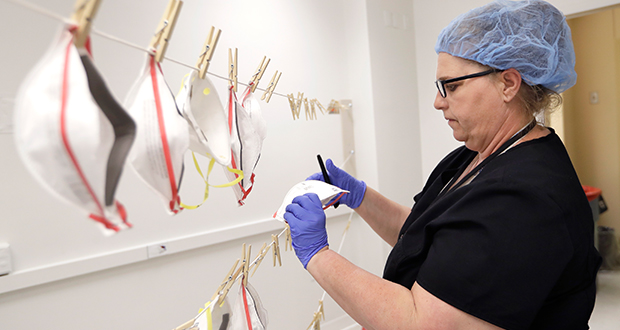The World Health Organization estimates that approximately 35,000 health workers have contracted COVID-19 worldwide, while the International Council of Nurses (ICN) says that around 100 nurses have died of the virus – and the number could be much higher.
2020 was slated to be the ‘year of the nurse’ by the WHO as a tribute to the 200th birthday of Florence Nightingale (1820–1910) and in return – as if to ram home how important nurses are to society – 2020 threw up a global pandemic.
Many nations have chosen to show their appreciation for nurses and other frontline workers with nationwide claps of appreciation, tweets, Facebook posts and general goodwill. However, many might not be aware of the tough conditions nurses actually face in some of the worst-COVID-affected countries.
The ICN says the number of nurses who have been infected and subsequently died could be much higher than reported due to the confusion that is accompanying the pandemic.
In Italy it has been reported that healthcare workers make up 9 per cent of Italy’s COVID-19 cases. To put that in perspective, Italy currently has 210,717 confirmed COVID-19 cases with over 28,000 deaths.
The President of the Italian Nurses Association (CNAI) Walter de Caro said: “Italy is engaged in a 'war' with this virus. Hospitals in the north are overrun and there are no free intensive care beds in the Lombardy region. Great efforts are being made to provide new facilities in the field in these very difficult times. There are issues around planning and resources and there is need for more intensive care specialist nurses.
“Some hospitals do have enough Personal Protective Equipment (PPE), but in most cases, nurses and doctors are forced to wear masks which are far past their effective use, and in some hospitals in central and southern Italy, staff have no PPE at all.
“Colleagues have told me they feel like they are going into battle with paper shields and toy guns. We need these supplies now, not tomorrow.”
The ICN say that of the 35,000 reported by the WHO, there is no breakdown of how many of those are nurses, and no centralised systematic recording of such infections and deaths.
“Each of these deaths is a tragedy: the thought of these nurses, who are mothers, fathers, brothers, sisters, sons and daughters, losing their lives because of the caring work they do, is truly heart breaking," said ICN President Annette Kennedy.
"And it is made much more so because of the additional risks they may have faced as a result of not having access to appropriate personal protective equipment to keep them safe. This should never have happened, and it must never happen again."
ICN chief executive Howard Catton has called on world leaders to ensure that providing appropriate PPE to health workers is priority number one.
“We recognise it is a challenge to supply the correct PPE to the right place at the right time, and we have written to the G-20 leaders asking them to work together and not to politically self-isolate. They have the power to change this situation by negotiating contracts and helping with the manufacture and distribution of this crucial life-saving equipment.”
The ICN says that now is the time to fully appreciate what nurses mean to society. Instead of standing on doorsteps and clapping, or sending pizzas to hospitals, they want money to be invested in healthcare.
“Around the world people are applauding the work of nurses and other health workers, and governments are saying how much they value their healthcare workforces. But when the applause dies down, when the accolades stop, governments need to have an honest look at their health systems, Catton said.
"The COVID-19 pandemic has shown health workers at their finest, often working long hours in terrible situations. But it has also exposed weaknesses in our health systems that must be addressed. Many countries need a significant and sustained investment in their healthcare systems to bring them to an acceptable level.
"Economic recession now looks inevitable, and governments will have to make difficult decisions about funding services, but this pandemic has shown that healthcare funding is not a luxury, and world leaders should back up their welcome praise with a commitment to properly fund healthcare in the future.”
Do you have an idea for a story?Email [email protected]
 Aged Care Insite Australia's number one aged care news source
Aged Care Insite Australia's number one aged care news source

